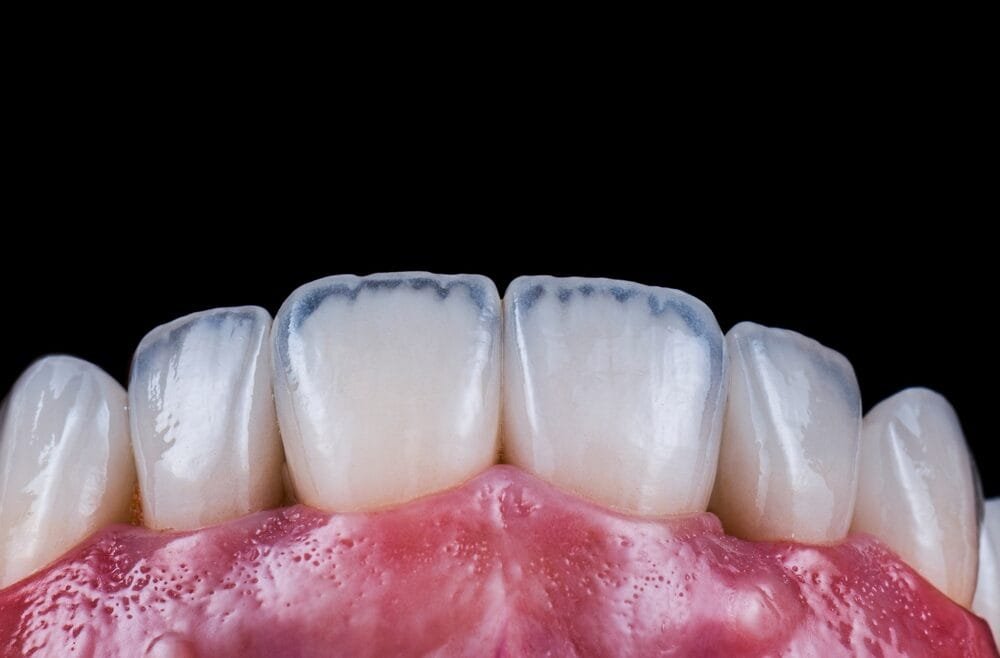A beautiful smile can boost confidence and improve overall well-being. However, dental issues like missing, damaged, or discolored teeth can affect both appearance and function. Two popular solutions for restoring a smile are dentures and veneers. While both serve to improve dental aesthetics, they are quite different in purpose, application, and benefits.
If you’re wondering which option is best for you, this guide will compare dentures vs. veneers, highlighting their differences, advantages, and ideal candidates for each.
What Are Dentures?
Dentures are removable prosthetic devices designed to replace missing teeth. They can be full or partial, depending on whether you need to replace an entire set of teeth or just a few missing ones.
Types of Dentures:
- Full Dentures: Replace all teeth in the upper or lower jaw.
- Partial Dentures: Replace a few missing teeth while preserving remaining natural teeth.
- Implant-Supported Dentures: Dentures that attach to dental implants for better stability.
Benefits of Dentures:
✔ Restore the ability to chew and speak properly.
✔ Improve facial structure and prevent sagging.
✔ More affordable compared to other permanent solutions.
✔ Can be removed for cleaning and maintenance.
Considerations for Dentures:
- May take time to adjust to wearing them.
- Require proper cleaning and maintenance.
- Can wear down over time and may need replacement.
What Are Veneers?
Veneers are thin, custom-made shells designed to cover the front surface of natural teeth. They are used primarily for cosmetic enhancement rather than tooth replacement.
Types of Veneers:
- Porcelain Veneers: Durable and stain-resistant, offering a natural look.
- Composite Veneers: Made from resin, more affordable but less durable.
Benefits of Veneers:
✔ Enhance the appearance of discolored, chipped, or misaligned teeth.
✔ Provide a natural and aesthetic smile.
✔ Resistant to stains and discoloration.
✔ Can last many years with proper care.
Considerations for Veneers:
- Requires some removal of natural tooth enamel.
- Permanent, as once applied, they cannot be reversed.
- Not suitable for severely damaged or missing teeth.
Key Differences Between Dentures and Veneers
| Feature | Dentures | Veneers |
| Purpose | Replace missing teeth | Enhance appearance of natural teeth |
| Material | Acrylic, metal, or porcelain | Porcelain or composite resin |
| Coverage | Full or partial mouth | Front surface of teeth |
| Removable? | Yes | No |
| Durability | Can wear out over time | Long-lasting with proper care |
| Maintenance | Requires daily cleaning | Regular brushing and flossing |
| Cost | Typically more budget-friendly | Higher initial cost but long-term benefits |
Who Should Choose Dentures?
Dentures are ideal for:
✔ Individuals with multiple or complete tooth loss.
✔ Those looking for a cost-effective solution for missing teeth.
✔ Patients who may not be suitable candidates for implants due to bone loss.
✔ Anyone wanting a removable dental solution for flexibility.
Who Should Choose Veneers?
Veneers are a great option for:
✔ People with stained, chipped, or slightly misaligned teeth.
✔ Those who want to enhance their smile without a full tooth replacement.
✔ Individuals looking for a permanent cosmetic solution.
✔ Patients with healthy teeth and gums who want a whiter, straighter smile.
Dentures vs. Veneers: Which One is Right for You?
Choosing between dentures and veneers depends on your dental needs. If you have missing teeth, dentures are a functional and aesthetic solution. If you simply want to improve the look of your existing teeth, veneers offer a long-lasting cosmetic fix.
It’s best to consult a dental professional to assess your oral health and determine the best option based on your needs and lifestyle.
Bay Wellesley Dental: Toronto’s Premier Emergency Dental Clinic
For residents of Toronto, Bay Wellesley Dental is one of the best choices for emergency dental care. Located at 15 Wellesley St W., Unit 210, Toronto, ON, M4Y 0G7, Bay Wellesley Dental is known for its prompt and compassionate response to dental emergencies. Whether you’re dealing with a sudden dental issue or a chronic problem that has escalated, the experienced team at Bay Wellesley Dental is ready to provide the care you need.
Contact Bay Wellesley Dental via email at office@baywellesleydental.com to receive immediate and expert emergency dental care. Their team is committed to delivering quick and effective treatment to address your dental emergencies and relieve pain.
FAQs
1. Can you get veneers if you have missing teeth?
No, veneers require natural teeth as they are bonded to the front surface. If you have missing teeth, dentures or implants are better options.
2. Do dentures look natural?
Yes, modern dentures are designed to look realistic. High-quality materials and proper fitting make them blend seamlessly with natural features.
3. How long do veneers last?
Porcelain veneers can last 10-15 years or more with proper care, while composite veneers typically last around 5-7 years.
4. Can you eat normally with dentures?
Yes, but it may take some time to adjust. Cutting food into smaller pieces and avoiding sticky or hard foods can make eating easier.
5. Do veneers stain like natural teeth?
Porcelain veneers are highly resistant to staining, while composite veneers may stain over time. However, good oral hygiene helps maintain their brightness.
Conclusion
Both dentures and veneers serve different purposes in dentistry. If you’re dealing with tooth loss, dentures are a functional and affordable solution. If you want to enhance the appearance of your teeth, veneers offer a cosmetic transformation that lasts.
Ultimately, the best choice depends on your oral health needs and lifestyle. Consulting a dental professional can help you determine whether dentures or veneers are the right solution for you.

